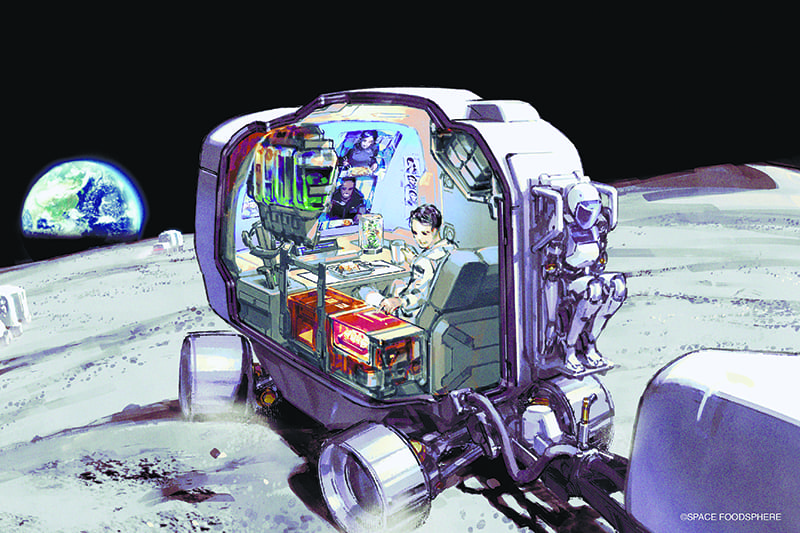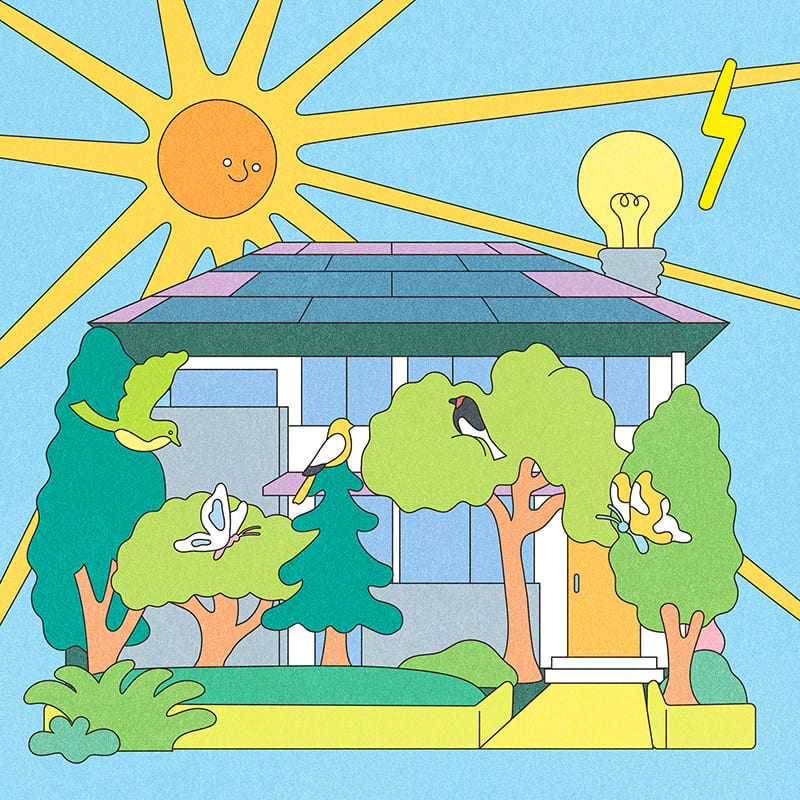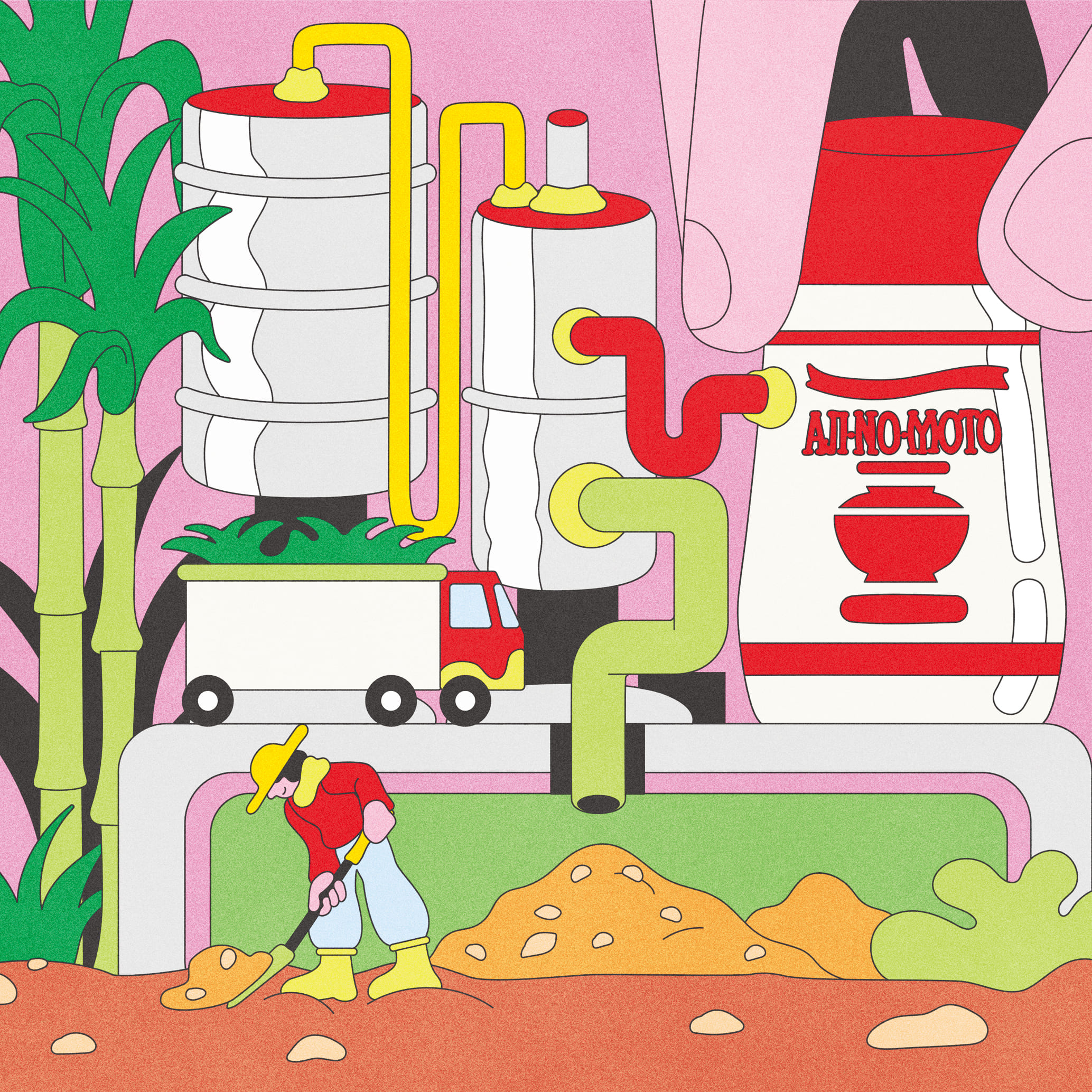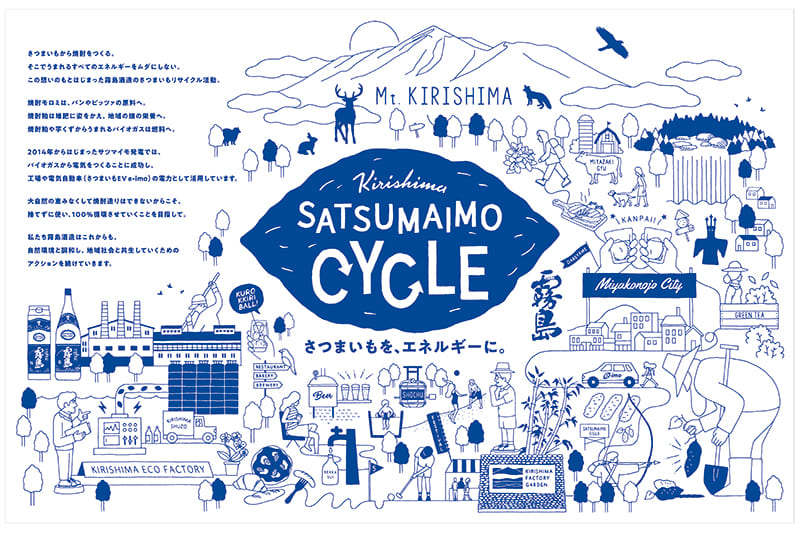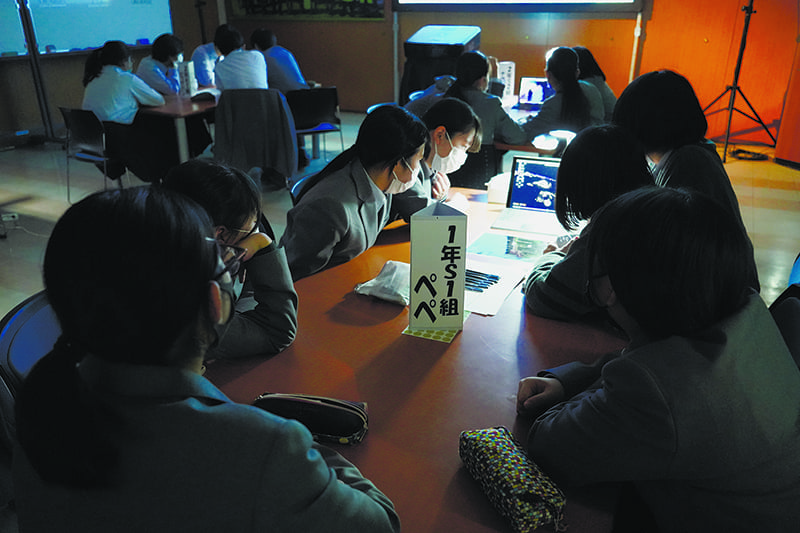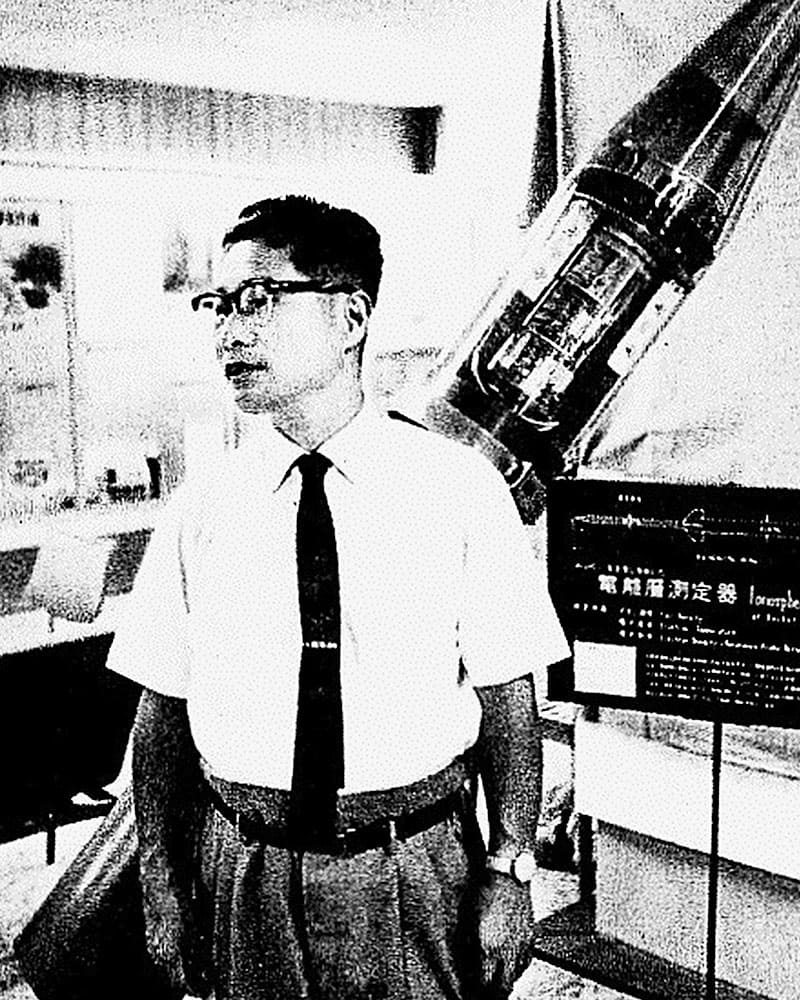January 28, 2022
Space Foodsphere plans down-to-earth answers
FOOD
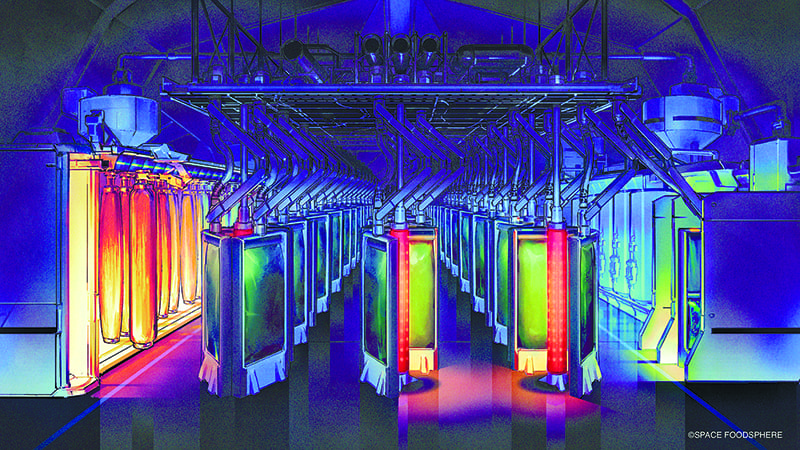

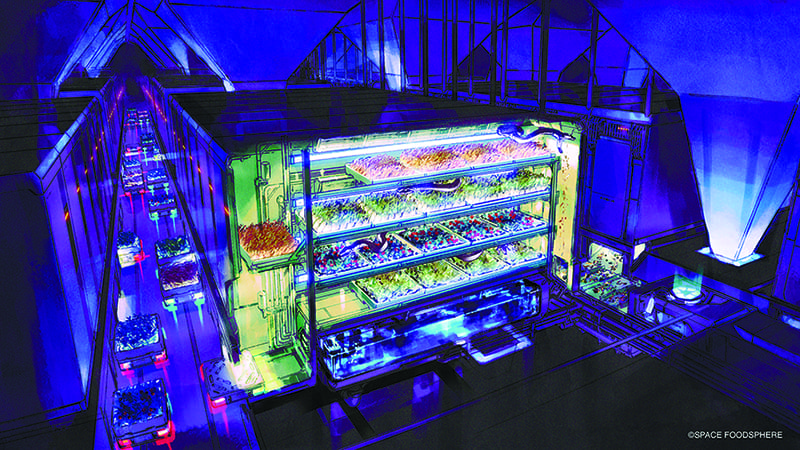
Bio-food reactors, plant factories and extended ecosystems might one day enable the production of a wide variety of crops in space. Various devices could be installed in a rover to let the occupant eat and remain in contact with fellow team members while working alone during lunar exploration. | © 2020 YUSUKE MURAKAMI / SPACE FOODSPHERE
The day when humans start living in space is not far off. NASA has announced that as part of its Artemis program, manned lunar exploration will be carried out by 2025 for the first time since the Apollo program in the 1960s and 1970s. Moreover, the plan hints at the creation of a new space station, Gateway, and for long-term stays by a thousand people on the surface of the moon to be possible by the 2040s.
Japan is participating in the program, and in 2020 a new budget of ¥7 billion ($60 million) was allocated to the Cabinet Office-led Strategic Program for Accelerating Research, Development and Utilization of Space Technology (known as the Stardust Program), which is aimed at realizing long-term stays on the moon. The program has four divisions: construction, telecommunications, energy and food. The food division is under the jurisdiction of the Ministry of Agriculture, Forestry and Fisheries, and the contractor has already been named: Space Foodsphere Association (SFS), a group that hopes to address food supply problems both in space and on Earth.
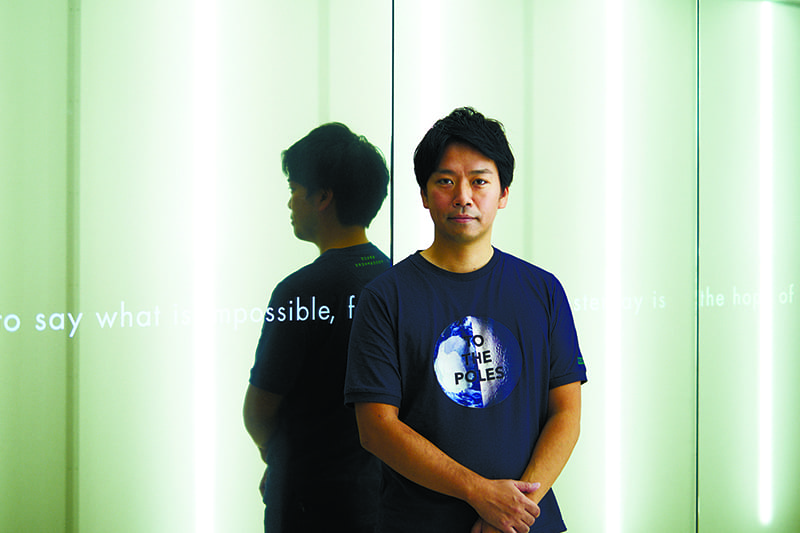
SFS was established in April 2020. The association conducts research and development on food production and consumption in space, and also hopes to apply its findings to improve resource recycling in the production and supply of food on Earth. Mizuki Komasa, the representative director of SFS, says many companies and institutions that had not previously been involved in the space business are now getting involved in order to help solve issues related to food.
“Up until now, space development has mostly involved heavy industry, but our organization collaborates with various stakeholders, including food manufacturers, ecosystem and resource recycling technology, architecture and transportation companies,” Komasa said.
Resource recycling is the ultimate challenge for food production in space. The key is being able to make the most of scarce resources, and that means recycling organic waste and even human waste, which on Earth is simply discarded. For example, to grow plants in space, a farm factory is being envisaged that would not only enable fully automated harvesting and transportation, but also reuse irrigation water and dispose of waste by breaking it down with microorganisms. In addition, to obtain sufficient protein, plans are underway for a bio-food reactor that would enable the production of cultured meat cells and algae that could be used as supplements. Komasa says that if these technologies become practical, they could also contribute to solving food problems on Earth.
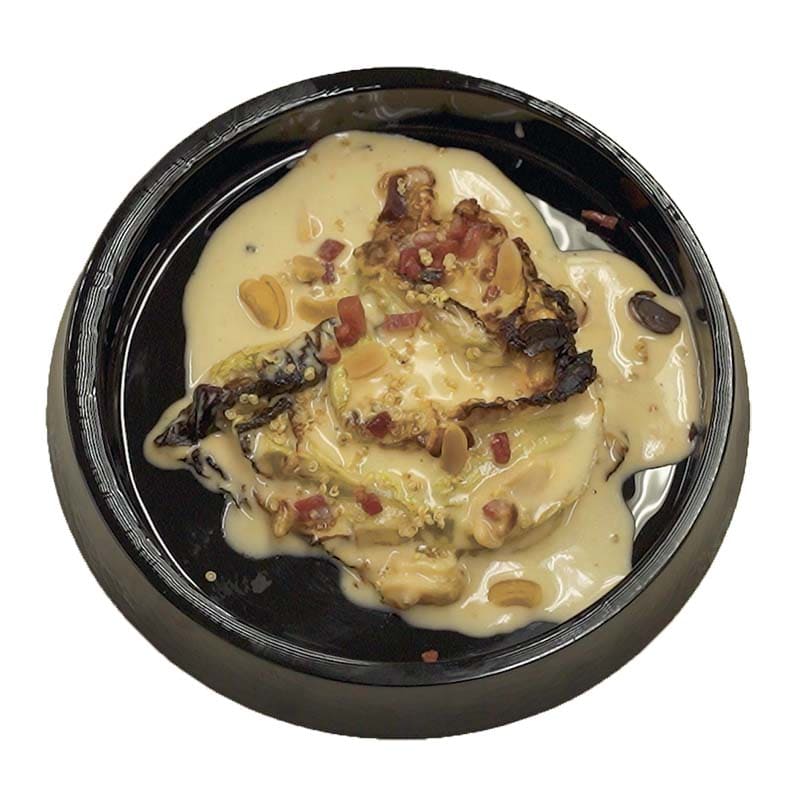
“Food shortages will become a serious problem in the future, but we’re also told that if food waste could be reduced to zero, then there would be no more food shortages. In other words, optimizing food distribution is key,” Komasa said. “Right now what we need is a paradigm shift in thinking. In the future, we can’t just be thinking about developing new production methods, but we also must look at resource recycling and food distribution. By doing so we’ll create not only new technologies but a new culture as well.”
In addition, SFS is running programs to examine eating habits in space from the perspective of lifestyle and culture. “Until now, only highly trained astronauts went to space, but in the future, space tourists, researchers and space-business people will also stay,” Komasa said. “In reality, space is not a magical realm of dreams, but a controlled environment that is highly dangerous. To help people survive in those conditions, we are proposing diverse food experiences and cultures.”
宇宙の「食」から、地球と人の未来を描く
人類が宇宙に移住する日はそう遠くないのかもしれない。NASAのアルテミス計画では、2040年代を目標に月面1000人の長期滞在が示唆されている。この計画に日本も参画し、2020年には内閣府主導のスターダストプログラムに新規予算70億円が計上。このプログラムにおいて、農林水産省が管轄する食部門の受託事業者に決定したのが地球と宇宙の食の課題解決を目指す一般社団法人Space Foodsphere(SFS)だ。
SFSは宇宙環境における食糧生産や食生活を視野に開発・研究を進めることで、地球にとってサスティナブルな食のあり方にも貢献するプログラムを提案。微生物のコントロールによって農業用水の再生や廃棄物処理を行える植物工場、細胞培養肉やサプリメントにもなる藻類の生産を可能とするバイオ食料リアクターなど、宇宙における効率的な資源循環の技術が実用可能になれば、地球上の食料問題の解決にも貢献できる。さらには技術的側面のみならず、宇宙環境での食生活をライフスタイルや文化的側面からも考慮するプログラムも進めている。
Return to Sustainable Japan Magazine Vol. 8 article list page

